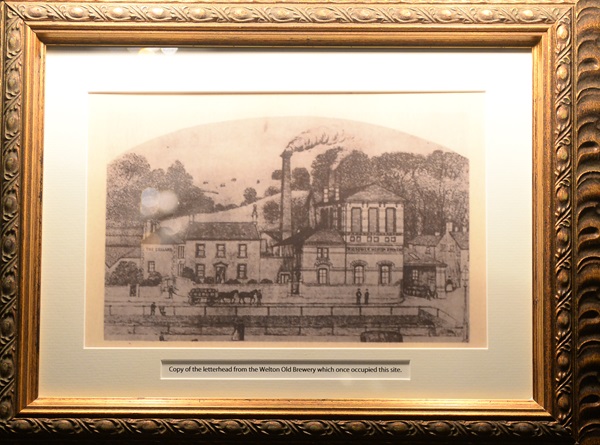Pub history
Palladium Electric
Unused for over 20 years, this former cinema is still a well-known town landmark. Set back slightly from the High Street, it first opened its doors in 1913 as the Empire cinema/theatre. Two years later, it became the Palladium Electric. In 1934, the cinema was enlarged, improved and renamed the Palladium, with its name still visible in the triangle above the entrance. The Palladium closed in 1993, with a showing of Cinema Paradiso.
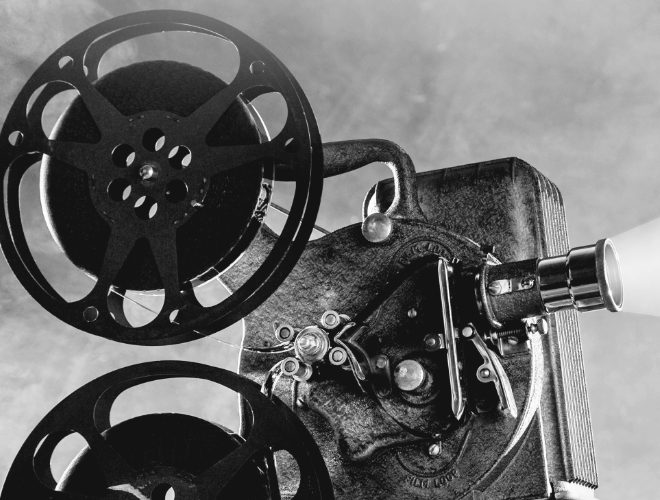
Unused for over 20 years, this former cinema is still a well-known town landmark. Set back slightly from the High Street, it first opened its doors in 1913 as the Empire cinema/theatre. Two years later, it became the Palladium Electric. In 1934, the cinema was enlarged, improved and renamed the Palladium, with its name still visible in the triangle above the entrance. The Palladium closed in 1993, with a showing of Cinema Paradiso.
A plaque documenting the history of the Palladium Electric
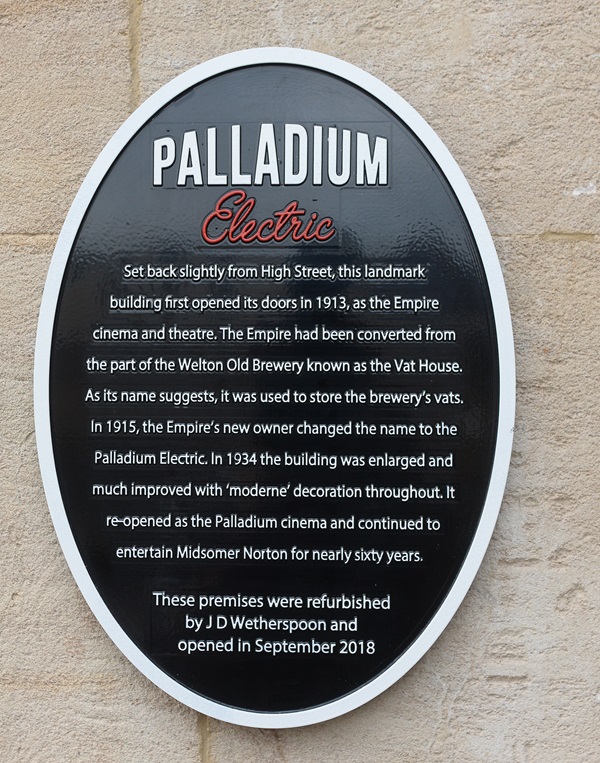
The plaque reads: Set back slightly from High Street, this landmark building first opened its doors in 1913, as the Empire cinema and theatre. The Empire had been converted from the part of the Welton Old Brewery known as the Vat House. As its name suggests, it was used to store the brewery’s vats. In 1915, the Empire’s new owner changed the name to the Palladium Electric. In 1934, the building was enlarged and much improved with ‘moderne’ decoration throughout. It reopened as the Palladium cinema and continued to entertain Midsomer Norton for nearly 60 years.
These premises were refurbished by J D Wetherspoon and opened in September 2018
An interior shot following the 1934 alterations to the Palladium
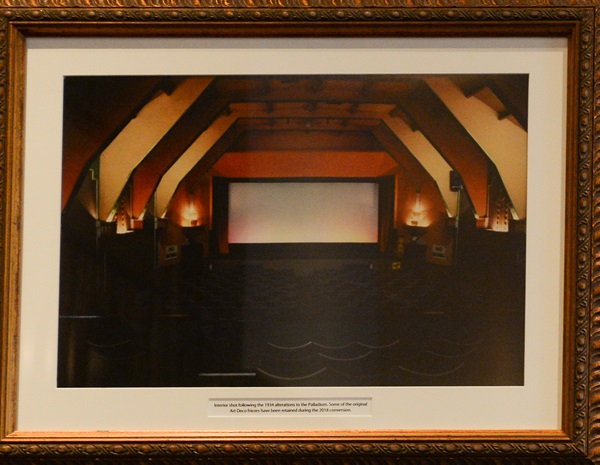
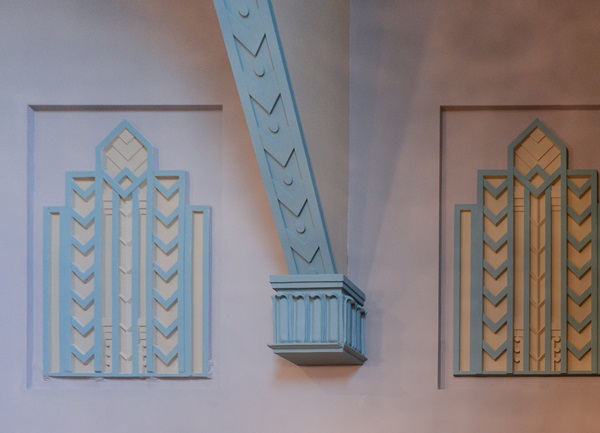
Some of the original Art Deco friezes were retained during the 2018 conversion.
A copy of the original letter submitted to the Norton Radstock Urban District Council offices by architect John F Rogers, regarding proposed alterations to the Palladium cinema, dating from 14 July 1934
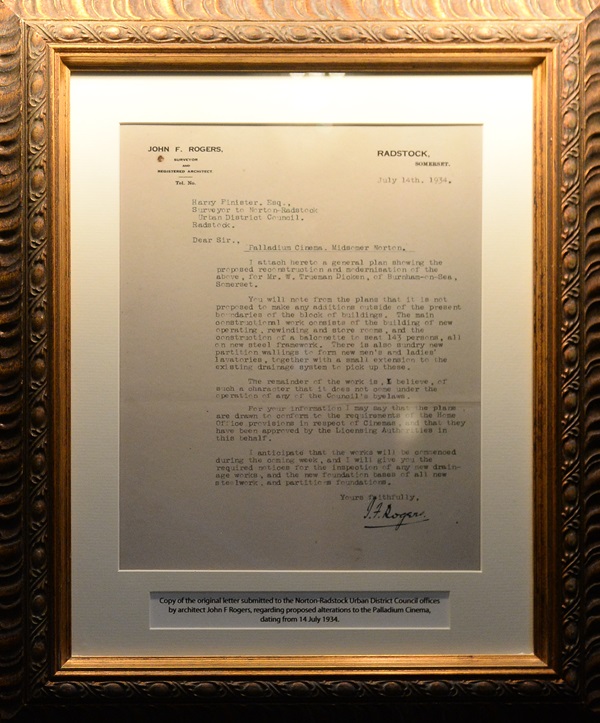
An old photograph and text about The Palladium
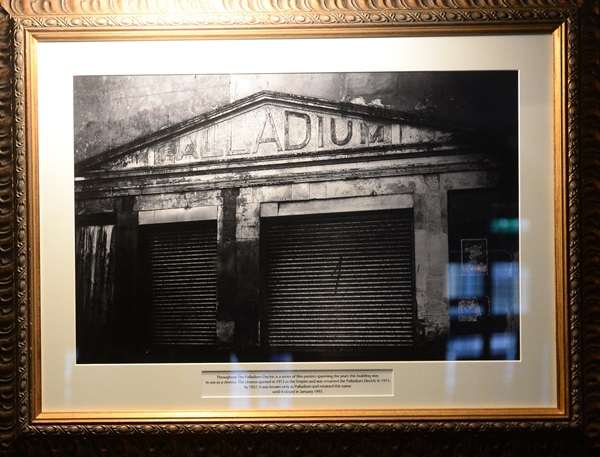
The text reads: Throughout The Palladium Electric is a series of film posters spanning the years this building was in use as a cinema. The cinema opened in 1913 as the Empire and was renamed the Palladium Electric in 1915. By 1927, it was known only as Palladium, and it retained this name until it closed in January 1993.
A photograph of Midsomer Norton, 1914
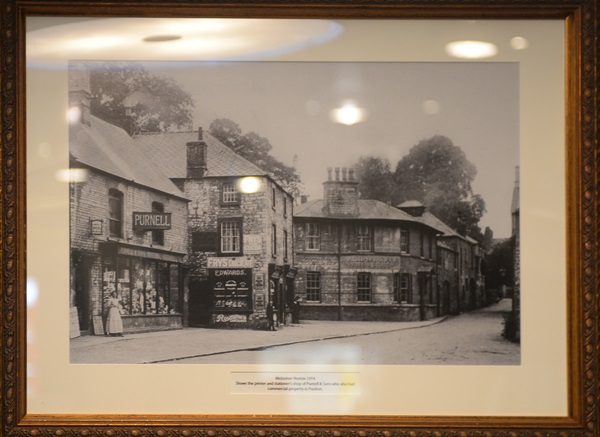
The text reads: Shows the printer and stationer’s shop of Purnell & Sons, who also had commercial property in Paulton.
A photograph and text about Norton Hill Colliery, c1910
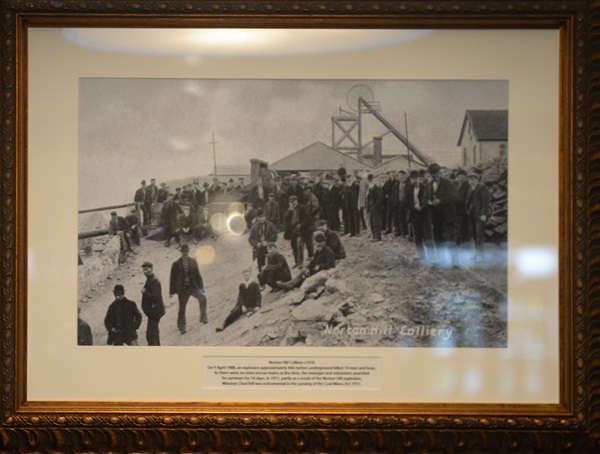
The text reads: On 9 April 1908, an explosion approximately 460 meters underground killed 10 men and boys. As there were no mine rescue teams at the time, the manager and volunteers searched for survivors for 10 days. In 1911, partly as a result of the Norton Hill explosion, Winston Churchill was instrumental in the passing of the Coal Mines Act 1911.
A photograph and text about Radstock Road, Midsomer Norton, 1910
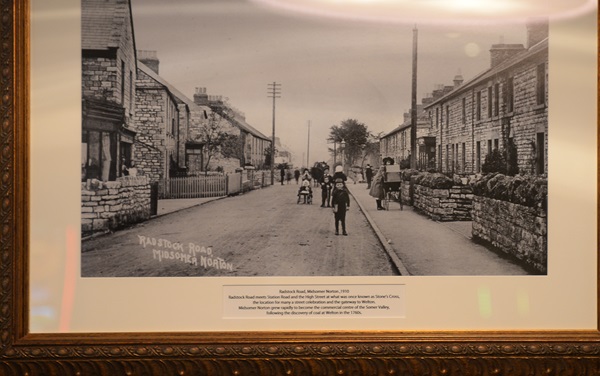
The text reads: Radstock Road meets Station Road and the High Street at what was once known as Stone’s Cross, the location for many a street celebration and the gateway to Welton.
Midsomer Norton grew rapidly to become the commercial centre of the Somer Valley, following the discovery of coal at Welton in the 1760s.
A photograph and text about Welton Old Brewery, Midsomer Norton, c1920
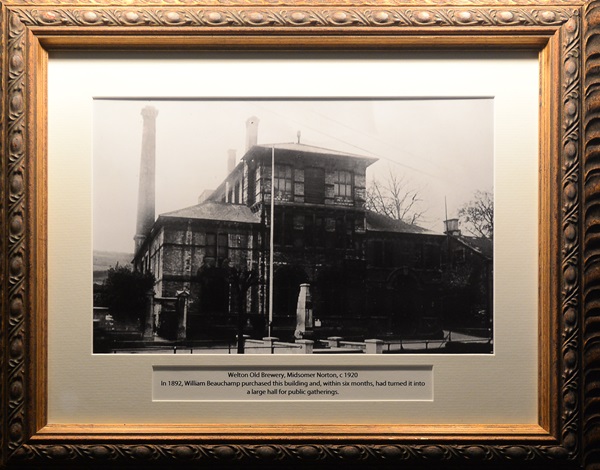
The text reads: In 1892, William Beauchamp purchased this building and, within six months, had turned it into a large hall for public gatherings.
A copy of the letterhead from the Welton Old Brewery which once occupied this site
An old photograph and text about this building
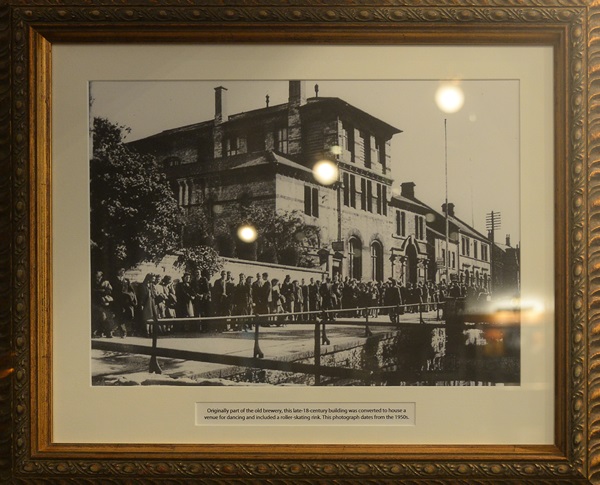
The text reads: Originally part of the old brewery, this late-18th century building was converted to house a venue for dancing and included a roller-skating rink. This photograph dates from the 1950s.
A photograph and text about Roald Dahl, 1916–90
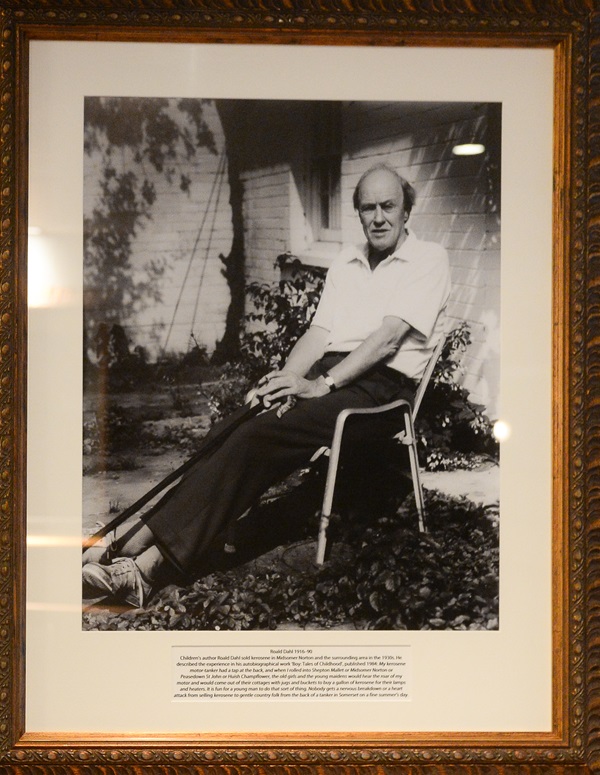
The text reads: Children’s author Roald Dahl sold kerosene in Midsomer Norton and the surrounding area in the 1930s. He described the experience in his autobiographical work Boy: Tales of Childhood, published 1984: ‘My kerosene motor-tanker had a tap at the back, and when I rolled into Shepton Mallet or Midsomer Norton or Peasedown St John or Huish Champflower, the old girls and the young maidens would hear the roar of my motor and would come out of their cottage with jugs and buckets to buy a gallon of kerosene for their lamps and heaters. It is fun for a young man to do that sort of thing. Nobody gets a nervous breakdown or a heart attack from selling kerosene to gentle country folk from the back of a tanker in Somerset on a fine summer’s day.’
